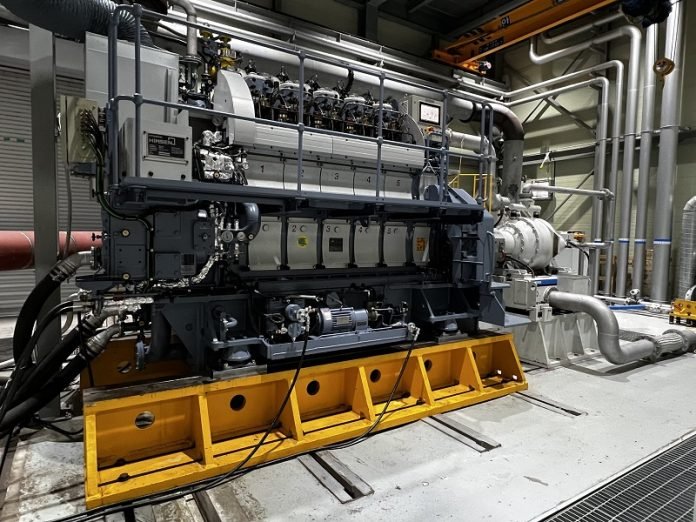
A breakthrough in marine engine technology could significantly reduce carbon dioxide (CO₂) emissions.
Researchers in Korea have developed a powerful marine engine that uses ammonia as fuel, a promising renewable energy source.
This new engine is expected to boost the competitiveness of environmentally friendly marine technology in the global market.
A joint research team, led by principal researcher Cheol-Woong Park from the Korea Institute of Machinery and Materials (KIMM), collaborated with the Korean Register, HD Hyundai Heavy Industries, HD Korea Shipbuilding & Offshore Engineering, the Korea Research Institute of Ships and Ocean Engineering (KRISO), and Kunsan National University.
They successfully demonstrated the use of LNG-ammonia dual-fuel engines at the KR Test & Certification Center (KR TCC).
The team conducted tests by injecting ammonia at high pressure into the combustion chamber of a marine engine. They managed to maintain stable combustion with high power and thermal efficiency.
Ammonia is a promising carbon-neutral fuel, but it poses challenges such as corrosiveness, toxicity, and the need for high ignition energy due to its slow combustion speed. These issues can lead to decreased engine power and efficiency.
To address these challenges, the researchers modified the O-ring material in the fuel supply system of the MW-class LNG-ammonia dual-fuel engine. This change prevented corrosion and external leakage of ammonia, resulting in a reduction of CO₂ emissions by more than 50%.
The team also optimized the ammonia fuel injection timing and combustion speed to meet the high energy ignition requirements.
By injecting high-pressure ammonia fuel directly into the combustion chamber and using a lean burn mixture with air, they improved both power output performance and thermal efficiency while reducing emissions.
Senior researcher Cheol-Woong Park from KIMM stated, “The MW-class ships, LNG-ammonia dual-fuel engine combustion technology is an exceptional innovation that meets greenhouse emission regulations and positions us at the forefront of the shipbuilding industry’s future.
This technology can be applied to ship engines and expanded to various power sources, including automobiles and generators, that need to reduce greenhouse emissions.”
This groundbreaking development in ammonia-fueled marine engines not only addresses the urgent need to reduce greenhouse gas emissions but also paves the way for cleaner and more efficient energy sources in various industries.
The success of this technology demonstration marks a significant step forward in the quest for sustainable and environmentally friendly solutions.
Source: KSR.



